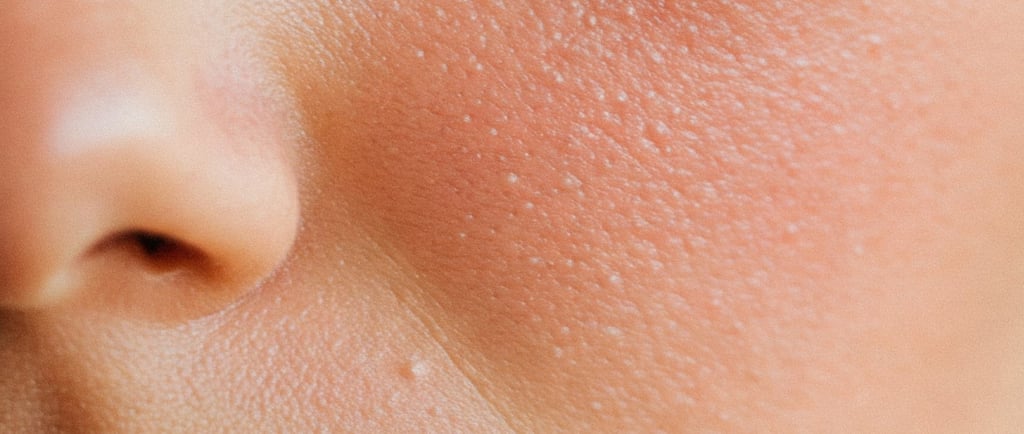Are you on Sensitive skin?


Sensitive skin is a common condition characterized by heightened reactions to various stimuli, resulting in discomfort and visible changes. Understanding its causes and implementing appropriate care strategies can significantly improve skin health and comfort.
What is Sensitive Skin?
Sensitive skin isn't a standalone medical diagnosis but rather a symptom indicating that the skin's sensory nerve endings are more reactive to external factors. This increased sensitivity often arises when the skin's natural protective barrier is compromised, making it more susceptible to irritation and inflammation.
Common Causes of Sensitive Skin
Several factors can contribute to skin sensitivity:
Environmental Influences: Exposure to extreme temperatures, wind, or sun can irritate sensitive skin.
Skin Conditions: Conditions like eczema, rosacea, or allergic contact dermatitis can manifest as increased skin sensitivity.
Harsh Products: Use of skincare products containing alcohol, fragrances, or certain preservatives can lead to irritation.
Allergens: Exposure to allergens, including certain foods or environmental factors like pollen and pet dander, can trigger skin reactions.
Identifying Sensitive Skin
Signs that you may have sensitive skin include:
Dryness or flakiness
If you frequently experience these symptoms, it's advisable to consult a dermatologist for proper assessment and guidance.
Caring for Sensitive Skin
Managing sensitive skin involves adopting gentle and thoughtful skincare practices:
Simplify Your Routine: Use minimal products with straightforward ingredients to reduce the risk of irritation.
Choose Gentle Cleansers: Opt for products free from harsh chemicals, fragrances, and dyes to cleanse without stripping natural oils.
Moisturize Regularly: Apply fragrance-free moisturizers containing hydrating ingredients like glycerin and ceramides to maintain the skin's barrier function.
Sun Protection: Use sunscreens with at least SPF 30 to shield sensitive skin from harmful UV rays.
Avoid Known Triggers: Identify and steer clear of products or environmental factors that provoke your skin's sensitivity.
Product Recommendations
For individuals with sensitive skin, selecting appropriate products is crucial:
Cetaphil Gentle Skin Cleanser: Praised for its soothing ingredients like glycerin and niacinamide, this cleanser effectively removes impurities without irritation.
La Roche-Posay Lipikar AP+ Triple Repair Moisturizing Cream: This fragrance-free cream is suitable for eczema-prone skin, providing hydration and restoring the skin barrier.
Burt's Bees Sensitive Solutions Gentle Cream Cleanser: Formulated for sensitive skin, this cleanser avoids harsh ingredients, ensuring gentle cleansing.
Conclusion
Sensitive skin requires attentive care and mindful product selection. By understanding its causes and implementing suitable skincare practices, you can enhance your skin's health and comfort. Always perform patch tests when introducing new products and consult a dermatologist for personalized advice.
